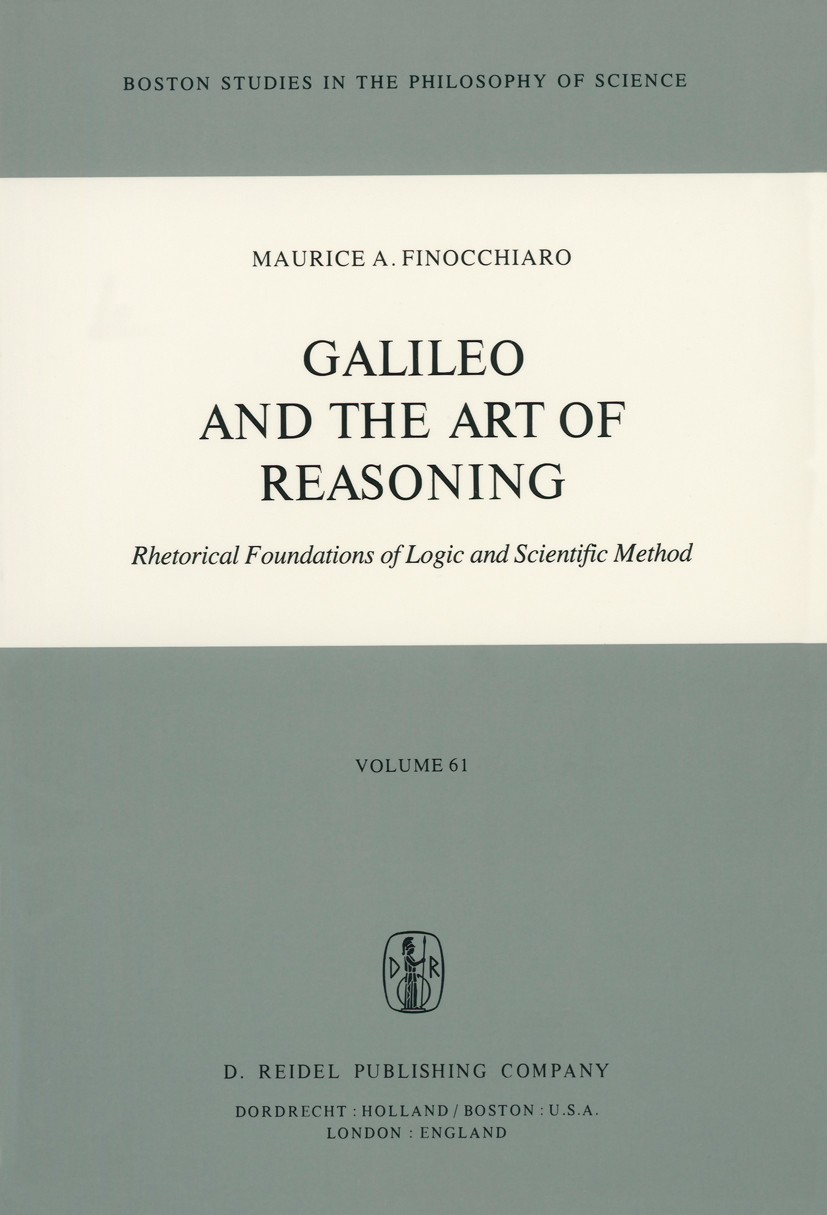| 书目名称 | Galileo and the Art of Reasoning | | 副标题 | Rhetorical Foundatio | | 编辑 | Maurice A. Finocchiaro | | 视频video | http://file.papertrans.cn/381/380390/380390.mp4 | | 丛书名称 | Boston Studies in the Philosophy and History of Science | | 图书封面 |  | | 描述 | The work of Galileo has long been important not only as a foundation of modern physics but also as a model - and perhaps the paradigmatic model - of scientific method, and therefore as a leading example of scientific rationality. However, as we know, the matter is not so simple. The range of Galileo readings is so varied that one may be led to the conclusion that it is a case of chacun a son Galileo; that here, as with the Bible, or Plato or Kant or Freud or Finnegan‘s Wake, the texts themselves underdetermine just what moral is to be pointed. But if there is no canonical reading, how can the texts be taken as evidence or example of a canonical view of scientific rationality, as in Galileo? Or is it the case, instead, that we decide a priori what the norms of rationality are and then pick through texts to fmd those which satisfy these norms? Specifically, how and on what grounds are we to accept or reject scientific theories, or scientific reasoning? If we are to do this on the basis of historical analysis of how, in fact, theories came to be accepted or rejected, how shall we distinguish ‘is‘ from ‘ought‘? What follows (if anything does) from such analysis or reconstruction about | | 出版日期 | Book 1980 | | 关键词 | Argument; Dialog; Galileo Galilei; history of science; proposition | | 版次 | 1 | | doi | https://doi.org/10.1007/978-94-009-9017-3 | | isbn_softcover | 978-90-277-1095-6 | | isbn_ebook | 978-94-009-9017-3Series ISSN 0068-0346 Series E-ISSN 2214-7942 | | issn_series | 0068-0346 | | copyright | D. Reidel Publishing Company Dordrecht, Holland 1980 |
The information of publication is updating

|
|
 |Archiver|手机版|小黑屋|
派博传思国际
( 京公网安备110108008328)
GMT+8, 2026-1-23 09:30
|Archiver|手机版|小黑屋|
派博传思国际
( 京公网安备110108008328)
GMT+8, 2026-1-23 09:30


